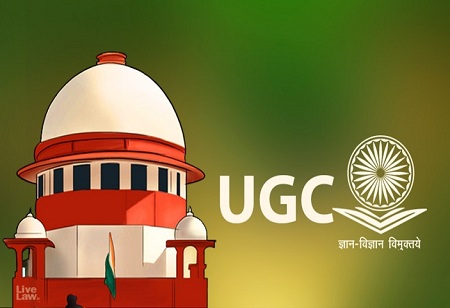University Grants Commission (UGC) rules, disabled students will now be able to choose between core, optional, and skill-based courses. Students with special needs across a range of impairments will also require assistance with learning through aided technologies and techniques, as well as mobility. Credit-based courses on Pedagogical Aspects of Teaching Divyangjan at Higher Education Institutions direct universities to offer the necessary support for the unique requirements of a disabled student. Students with special needs, according to the standards, should be taught using a variety of teaching modalities, such as visual, auditory, tactile, or kinesthetic learning styles, and should be supplied with assistive technologies to do so. Higher education can help by offering extra financial support from various organizations, chances for work-based learning or apprenticeship, career counseling and placement arrangements, or residential training facilities institutions must take.
The standards specify a list of resources that should be offered by higher education institutions to persons suffering from 19 types of impairment. for those with physical disabilities, institutes must provide support in motor, fine-motor, locomotor, and non-locomotor functioning, mobility assistance, assistance in using objects (such as turning pages, writing with a pen, or typing on a keyboard), and assistance in the use of infrastructure or technology. Survivors of acid attacks should be offered assistance with voice and communication, hand manipulation, and visual acuity.
People with cerebral palsy should be helped with movement, transfers, utilizing items, self-care, and speech and communication. Individuals with visual impairments should be provided. According to the standards, those with cerebral palsy should be given assistance with movement, transfers, utilizing items, self-care, and speech and communication. People with visual disabilities should have access to information in a number of formats, including braille, audio, larger print, digital formats, screen reading software, or other tactile and sensory systems, as well as orientation and mobility aid, among other things.
The UGC finalized the rules late last month after releasing a draft in September last year and inviting the public to submit comments within a month. The rules were drafted by an expert committee that included National Centre for Disability Studies (NCDS) director Sanjay Kant Prasad, V P Sah of the Ministry of Social Justice and Empowerment's disabilities department, Prof Sara Begum of Jamia Millia Islamia's Department of Special Education, C S Vanaja of the Bharati Vidyapeeth, and GS Chauhan of the UGC. The Disability Rights Act of 2016, the National Policies for People with Disabilities 2006, the National Higher Education Qualifications Framework 2022, and the National Education Policy 2020 all push for equal opportunity for impaired students.

